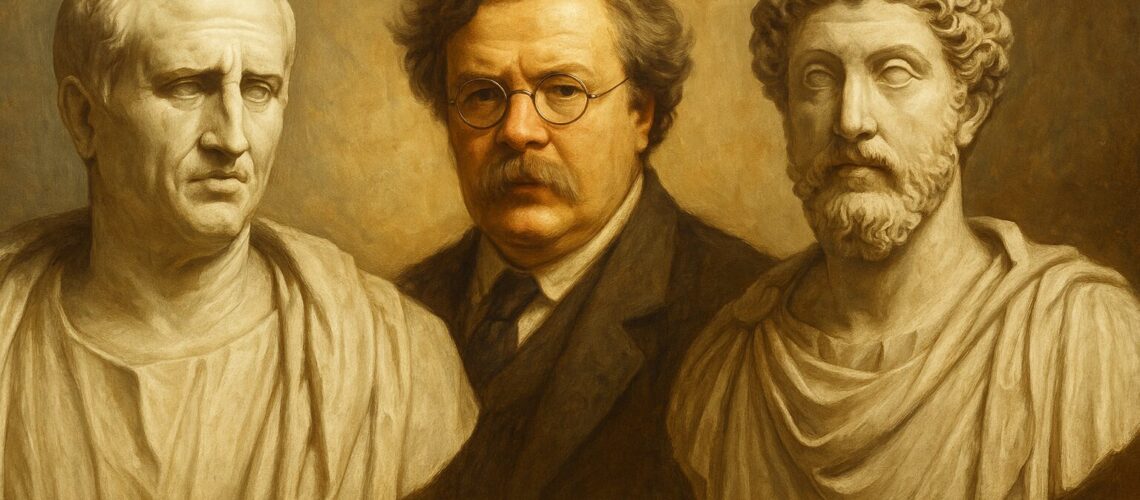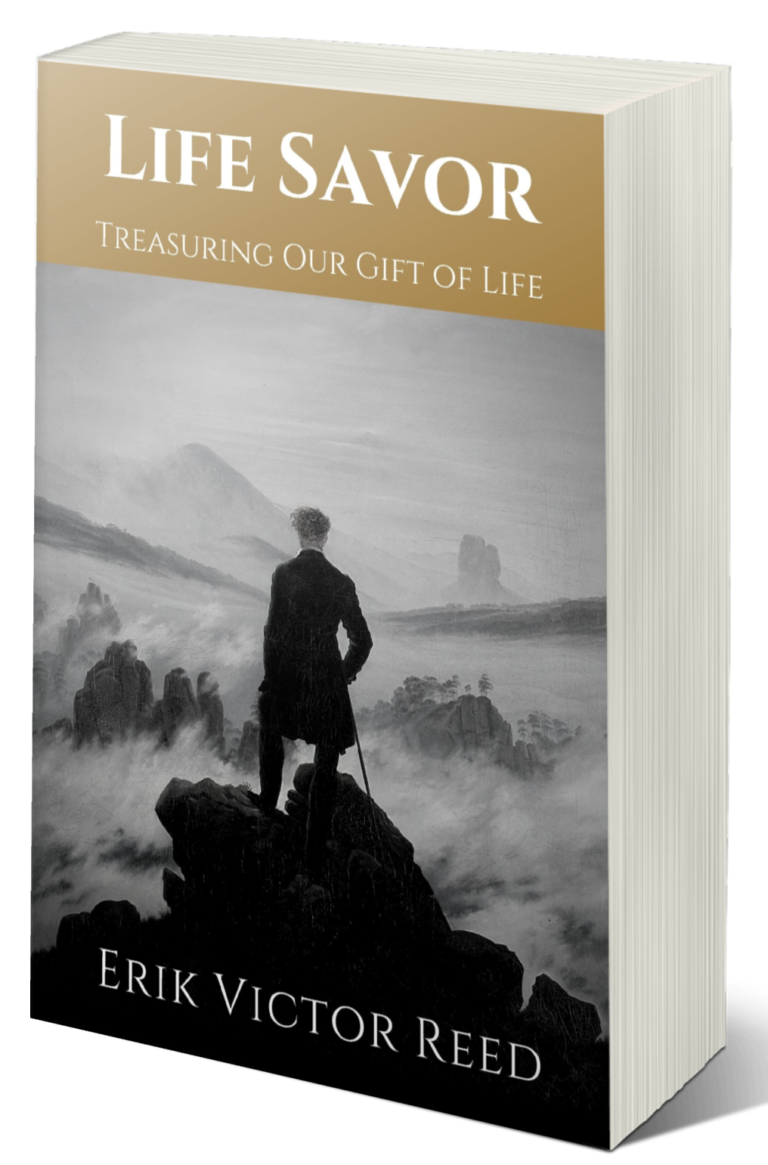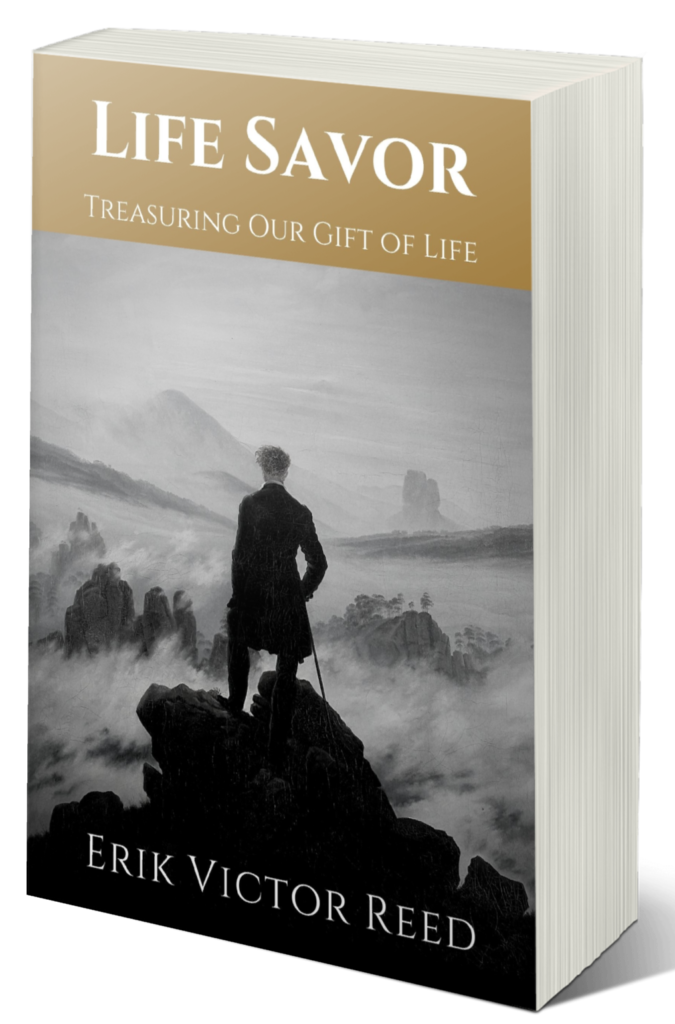A Triad of Voices Across the Ages
Gratitude is as old as human reflection. Across centuries and cultures, thinkers have returned to it as one of life’s essential orientations. Not a nicety, not an afterthought — but a compass for how to live.
Here are three voices — a Roman statesman, a British essayist, and a Stoic emperor — each pointing us toward the same truth: gratitude is not peripheral; it is central.
1. Cicero: The Greatest of Virtues
“Gratitude is not only the greatest of virtues, but the parent of all the others.”
— Cicero
Cicero’s claim is bold: gratitude is the soil from which every other virtue grows.
Why would he say this? Because without gratitude, virtue curdles. Courage without gratitude becomes recklessness. Generosity without gratitude becomes condescension. Justice without gratitude becomes cold duty. Gratitude humanizes, roots, and balances them all.
To feel grateful is to remember that we do not exist by our own power alone. There are also gifts. The sun shines, the rain falls, the earth yields fruit, and none of it is our doing. To forget this is to grow arrogant; to remember it is to grow clear-eyed. And from humble clarity, the other virtues find their place.
Embracing What’s Overlooked:
Picture a soldier returning from war. He has seen cruelty, destruction, the worst of human nature. At home, his family embraces him. A meal is set before him. Tears rise as he realizes how much of life he once overlooked: the safety of shelter, the warmth of bread, the sound of laughter. Gratitude floods him — not as sentimentality, but as anchor. It reminds him that life is not owed to him, that life is a gratuity, and that it is filled with given treasure worth defending.
Cicero’s point is clear: gratitude is not a mere decoration on virtue. It is its parent.
2. Chesterton: Thanks as the Highest Form of Thought
“I would maintain that thanks are the highest form of thought; and that gratitude is happiness doubled by wonder.”
— G. K. Chesterton
Chesterton reframes gratitude as intellectual clarity. To say “thank you” is not childish; it is profound.
Why? Because gratitude recognizes reality as gift. It is not just happiness — it is happiness plus awareness. Gratitude doesn’t just enjoy a meal; it marvels that food exists at all. It doesn’t just laugh with friends; it marvels that consciousness and connection exist in the universe.
You Are Still Here:
Imagine someone waking in a hospital after a close call. Machines beep, nurses bustle, pain still lingers. And yet — they look around and think, I am still here. The sheets are rough, but they feel them. The ceiling is bland, but they see it. Even survival itself, though not glamorous, is astonishing.
Chesterton’s “happiness doubled by wonder” is exactly this: not blind optimism, but the heightened awareness that even in difficulty, existence itself is improbable and wondrous.
Gratitude, in Chesterton’s view, is the highest form of thought because it sees reality in its proper frame: as miraculous.
3. Marcus Aurelius: Morning Reminder
“When you arise in the morning, think of what a precious privilege it is to be alive — to breathe, to think, to enjoy, to love.”
— Marcus Aurelius
Marcus Aurelius was an emperor, commanding armies and ruling vast lands. Yet in his private journal, he reminded himself daily of something simple: life is a privilege.
He knew what we forget: that each morning could be our last. Gratitude is not about ignoring hardship; it is about beginning with perspective. Before tackling problems, remember the staggering fact that you get another day at all.
The Privilege:
Picture a woman rising before dawn. She’s exhausted, bills weigh heavy, her job feels uncertain. She rubs her eyes, pulls on her coat, steps into the cold. As she walks, she remembers Marcus’s words. She breathes deeply, noticing the sharp air in her lungs. She feels her heart pumping. She looks at the stars still burning overhead. She whispers to herself: It is a privilege.
Her circumstances haven’t changed. But her orientation has. Gratitude reframes her morning from drudgery to gift.
A Thread Through All Three
- Cicero tells us gratitude births virtue.
- Chesterton shows us gratitude doubles happiness with wonder.
- Marcus reminds us gratitude is how to begin each day.
Three different eras. Three different lives. One truth: gratitude is not optional if we want to live well.
Mortality’s Undercurrent
Each thinker, in his way, was confronting mortality. Cicero lived amid Rome’s political turmoil, where life could end quickly. Chesterton saw modernity’s disillusionment and offered wonder as an antidote. Marcus faced wars and plagues while ruling an empire.
All knew: life is fragile. Gratitude is how we keep fragility from becoming despair. It turns the fleeting into the precious.
Practices from the Quotes
- From Cicero: Anchor virtue in gratitude. When you practice courage, generosity, or justice, pause to remember the gifts that make those possible.
- From Chesterton: Add wonder to joy. Don’t just feel happy; marvel at the improbability of the experience.
- From Marcus: Begin each day with thanks. Before the rush, whisper: It is a privilege to be here.
Closing Thought
Gratitude has been called many things: parent of virtue, highest form of thought, morning reminder. But behind each phrase is the same conviction: gratitude keeps us human.
It steadies our striving. It enlarges our joy. It sharpens our awareness of the miracle of being alive.
So today, let Cicero, Chesterton, and Marcus be your companions. Let them remind you that life is fragile, fleeting, and therefore precious. And let them urge you, in their own voices, to say the simplest and most profound of words: Thank you.
For more like this, visit the broader project at life-savor.com, or explore the Life Savor book itself.
To learn more about Life Savor’s philosophy,
read Life Savor: Treasuring Our Gift of Life by Erik Victor Reed.








